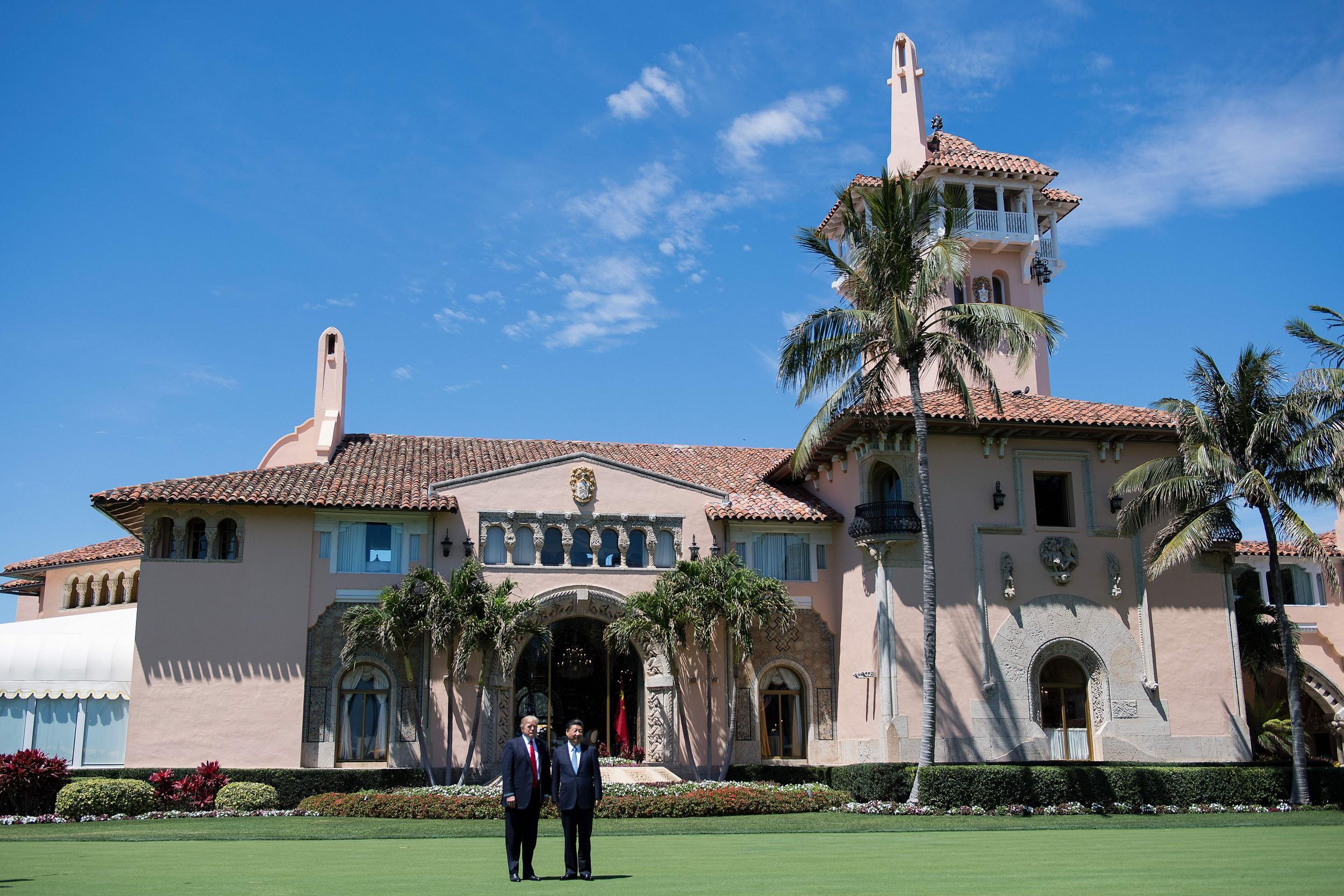US State Department website removes article promoting Mar-a-Lago resort after outcry
Promotion exacerbates conflict of interest concerns surrounding President Donald Trump's business ties

Your support helps us to tell the story
From reproductive rights to climate change to Big Tech, The Independent is on the ground when the story is developing. Whether it's investigating the financials of Elon Musk's pro-Trump PAC or producing our latest documentary, 'The A Word', which shines a light on the American women fighting for reproductive rights, we know how important it is to parse out the facts from the messaging.
At such a critical moment in US history, we need reporters on the ground. Your donation allows us to keep sending journalists to speak to both sides of the story.
The Independent is trusted by Americans across the entire political spectrum. And unlike many other quality news outlets, we choose not to lock Americans out of our reporting and analysis with paywalls. We believe quality journalism should be available to everyone, paid for by those who can afford it.
Your support makes all the difference.The State Department has removed from its website an article about the history and lavish furnishings of President Donald Trump's privately owned Florida resort club Mar-a-Lago, following questions about whether the federal government improperly promoted Trump's moneymaking enterprises.
Senator Ron Wyden, D-Ore., pointed to the travelogue-style blog piece Monday, asking in a Twitter message why the State Department would spend “taxpayer $$ promoting the president's private country club.”
The State Department issued a statement Monday apologising for “any misperception.”
“The intention of the article was to inform the public about where the president has been hosting world leaders,” the statement said.
It was not clear whether the item had been vetted for legal or ethical concerns.
The short item had been posted on a travel promotional website called “Share America” on 4 April, ahead of Trump's meeting at Mar-a-Lago with Chinese President Xi Jinping. A version of the item was recently reposted on the website maintained by the US Embassy in London, where it caught the attention of watchdog groups.
The item adopted Trump's term “winter White House” for the members-only club. It did not expressly encourage foreigners to visit Mar-a-Lago, although other articles on the same website actively promote US tourism. The item did note that the estate “is located at the heart of Florida's Palm Beach community.”
“By visiting this 'winter White House,' Trump is belatedly fulfilling the dream of Mar-a-Lago's original owner and designer,” the item read. “The ornate Jazz Age house was designed with Old-World Spanish, Venetian and Portuguese influences” and filled with original owner Marjorie Merriweather Post's collection of antiques, the article noted.
The item included photographs of the house and sumptuous interiors, and copies of Trump tweets mentioning Mar-a-Lago.
The article gave a brief summary of the 1927 mansion's history, including Post's desire that it be used by US presidents as a retreat and the subsequent decision by the US government that the property was too expensive to maintain. Trump bought it in 1985.
“After refurbishing the house and adding an events space, Trump opened the estate to dues-paying members of the public in 1995 as the Mar-a-Lago Club,” the State Department item read. “Post's dream of a winter White House came true with Trump's election in 2016. Trump regularly works out of the house he maintains at Mar-a-Lago and uses the club to host foreign dignitaries.”
One watchdog group, American Oversight, called for an investigation by the State Department inspector general and said it would request public records documenting how the blog post was created.
The State Department describes the “Share America” site as its “platform for sharing compelling stories and images that spark discussion and debate on important topics like democracy, freedom of expression, innovation, entrepreneurship, education, and the role of civil society.”
The site is produced by the department's Bureau of International Information Programs, which produces material distributed by US embassies.
The Washington Post
Join our commenting forum
Join thought-provoking conversations, follow other Independent readers and see their replies
Comments